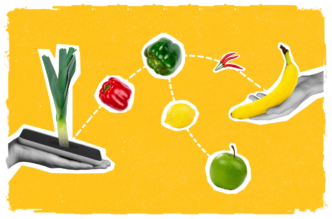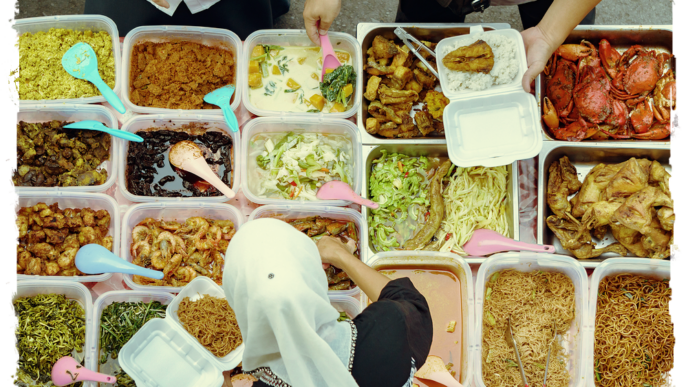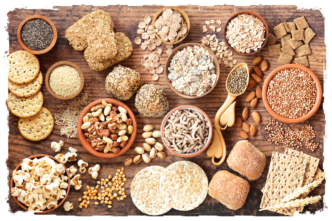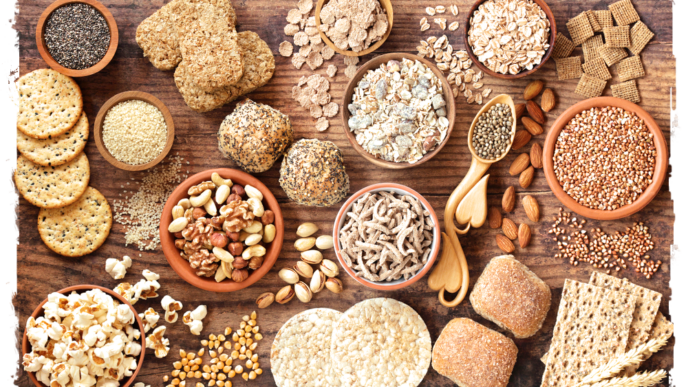WORDS SHIVARANJANI MOHAN KUMAR AND DR HARVINDER KAUR GILCHARAN SINGH
 FEATURED EXPERT FEATURED EXPERTSHIVARANJANI MOHAN KUMAR BSc Food Science (UMS) Student of Master’s in Clinical Nutrition Universiti Kebangsaan Malaysia (UKM) |
 FEATURED EXPERT FEATURED EXPERTDR HARVINDER KAUR GILCHARAN SINGH Senior Lecturer Centre for Community Health Studies (ReaCH) Faculty of Health Sciences Universiti Kebangsaan Malaysia (UKM) |
THE TRUTH ABOUT CARBS: FRIEND OF FOE?
Carbohydrates often have a bad reputation get blamed as the ‘villains’ in diabetes management, but they are not your enemy.
Truthfully, not all carbs are created equally. It is possible to effectively control your type 2 diabetes mellitus (T2DM) and still have a varied and fulfilling diet.
YOU CAN ACHIEVE THIS THROUGH A PARTIAL PLANT-BASED DIET
Many people hesitate to adopt a plant-based diet because they believe it means giving up all animal-based foods, causing them to miss out on this life-changing approach.
But let me assure you, you don’t have to completely stop eating animal products to enjoy the benefits.
By understanding how to choose and balance your carbs within a flexible plant-based approach, you can take control of your T2DM while enjoying a diverse, satisfying diet.
Advantages of a Partial Plant-Based Diet for Good T2DM Control
- Lower saturated fat content
- Higher fibre intake
- Rich in vitamins and minerals
- Natural anti-inflammatory properties
- Better blood sugar control
UNDERSTANDING YOUR BODY’S RELATIONSHIP WITH CARBS
Carbs are our body’s primary energy source. When we eat carbohydrates, our body transforms them into glucose for energy.
For people with T2DM, managing carbohydrate intake is important because it can raise blood sugar directly. So, consuming the right quantity and quality of carbs is the ultimate key.
Here’s what you need to know about different types of carbs.
Simple Carbs (Avoid Whenever Possible—Choose a Healthier Alternative, See Below)
- Table sugar and honey
- Fruit juice and sodas
- Cookies, cakes, and candies
Refined Carbs (Limit These)
- White rice and pasta
- White bread
- Processed cereals and pastries
Complex Carbs (The Healthier Alternatives)
- Brown rice and whole grains
- Legumes (beans and lentils)
- Starchy vegetables (sweet potatoes, corn, pumpkin)
- Fresh fruits
Eating complex carbs will not rapidly increase your blood sugar, as they contain fibre and other complex starches that take longer for our body to digest.
| So, remember to eat more complex carbs, not simple carbs! |
WHAT YOU SHOULD REALLY WATCH OUT FOR: THE FATS
Contrary to popular belief, fat—not carbs—might be the bigger concern in T2DM management.
The Fat-Insulin Connection
- Insulin resistance occurs when body tissues don’t respond properly to normal insulin levels.
- It is possible that fat accumulation in liver and muscle cells, as well as in areas of inflammation, is responsible for such insulin resistance.
- Hence, there is a possibility that a diet high in saturated fats can interfere with insulin function.
HOWEVER, WE SHOULDN’T CUT OUT ALL FATS ALTOGETHER!
Following a balanced diet is crucial, which includes consuming the right types of fats. Use the following as a guideline.
Do Include in Your Diet
- Unprocessed seeds (chia, flax, sunflower)
- Nuts (walnuts, almonds)
- Healthy oils (olive oil)
Avoid These Whenever Possible—Choose Healthier Alternatives
- Butter and lard
- Cream and full-fat dairy
- Processed meats
- Fried foods
PRACTICAL STEPS TO MAKE A SUCCESSFUL TRANSITION TO A PARTIAL PLANT-BASED DIET
Adopt the Right Approach
- Start gradually.
- You don’t need to eliminate all animal products; in a partial plant-based diet, meat can still be included, but it should not be the main component of the meal.
- Instead, focus on eating more whole, unprocessed foods.
- Slowly cut down on the amount of meat and up the fruits and vegetables in your meals.
- Plan your meals ahead.
Start by Making Simple Food Swaps
- Replace white rice with brown rice.
- Switch to whole grain bread.
- Include more vegetables in your meals; pick vegetables of a variety of colours.
- Choose legumes over meat in some meals.
- Snack on fresh fruits with low glycaemic index instead of processed foods.
- Use natural sweeteners, such as date paste, instead of refined sugar.
| Examples of fruits with low glycaemic index are berries, apples, pears, oranges, guava, and papaya. |
Watch Out for These Plant-Based Pitfalls!
Not all plant-based foods are created equal. Be cautious with:
- Processed vegan alternatives
- Plant-based or vegan “meats”
- Vegan yoghurt and processed snacks
- Sweetened plant milk and beverages
- Processed vegan cheese
| Start slowly if you’re new. Remember to always maintain a balanced meal that includes the right amount of carbs, proteins, fats, and fiber in your diet. You can consult a dietitian for more advice. |
References:
- American Diabetes Association. (n.d.). Fats. https://diabetes.org/food-nutrition/reading-food-labels/fats?form=MG0AV3
- Centers for Disease Control and Prevention. (2024, May 15). Choosing healthy carbs. https://www.cdc.gov/diabetes/healthy-eating/choosing-healthy-carbs.html
- Kahleova, H., Petersen, K. F., Shulman, G. I., Alwarith, J., Rembert, E., Tura, A., Hill, M., Holubkov, R., & Barnard, N. D. (2020). Effect of a low-fat vegan diet on body weight, insulin sensitivity, postprandial metabolism, and intramyocellular and hepatocellular lipid levels in overweight adults: A randomized clinical trial. JAMA network open, 3(11), e2025454. https://doi.org/10.1001/jamanetworkopen.2020.25454
- Lee, S. H., Park, S. Y., & Choi, C. S. (2022). Insulin resistance: From mechanisms to therapeutic strategies. Diabetes & metabolism journal, 46(1), 15–37. https://doi.org/10.4093/dmj.2021.0280
- Li, D., Zhong, J., Zhang, Q., & Zhang, J. (2023). Effects of anti-inflammatory therapies on glycemic control in type 2 diabetes mellitus. Frontiers in immunology, 14, 1125116. https://doi.org/10.3389/fimmu.2023.1125116
- Panigrahi, G., Goodwin, S. M., Staffier, K. L., & Karlsen, M. (2023). Remission of type 2 diabetes after treatment with a high-fiber, low-fat, plant-predominant diet intervention: A case series. American journal of lifestyle medicine, 17(6), 839–846. https://doi.org/10.1177/15598276231181574
- Taylor, R., Al-Mrabeh, A., & Sattar, N. (2019). Understanding the mechanisms of reversal of type 2 diabetes. The Lancet. Diabetes & endocrinology, 7(9), 726–736. https://doi.org/10.1016/S2213-8587(19)30076-2
- Wang, Y., Liu, B., Han, H., Hu, Y., Zhu, L., Rimm, E. B., Hu, F. B., & Sun, Q. (2023). Associations between plant-based dietary patterns and risks of type 2 diabetes, cardiovascular disease, cancer, and mortality – a systematic review and meta-analysis. Nutrition journal, 22(1), 46. https://doi.org/10.1186/s12937-023-00877-2














